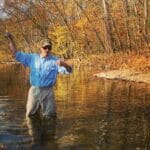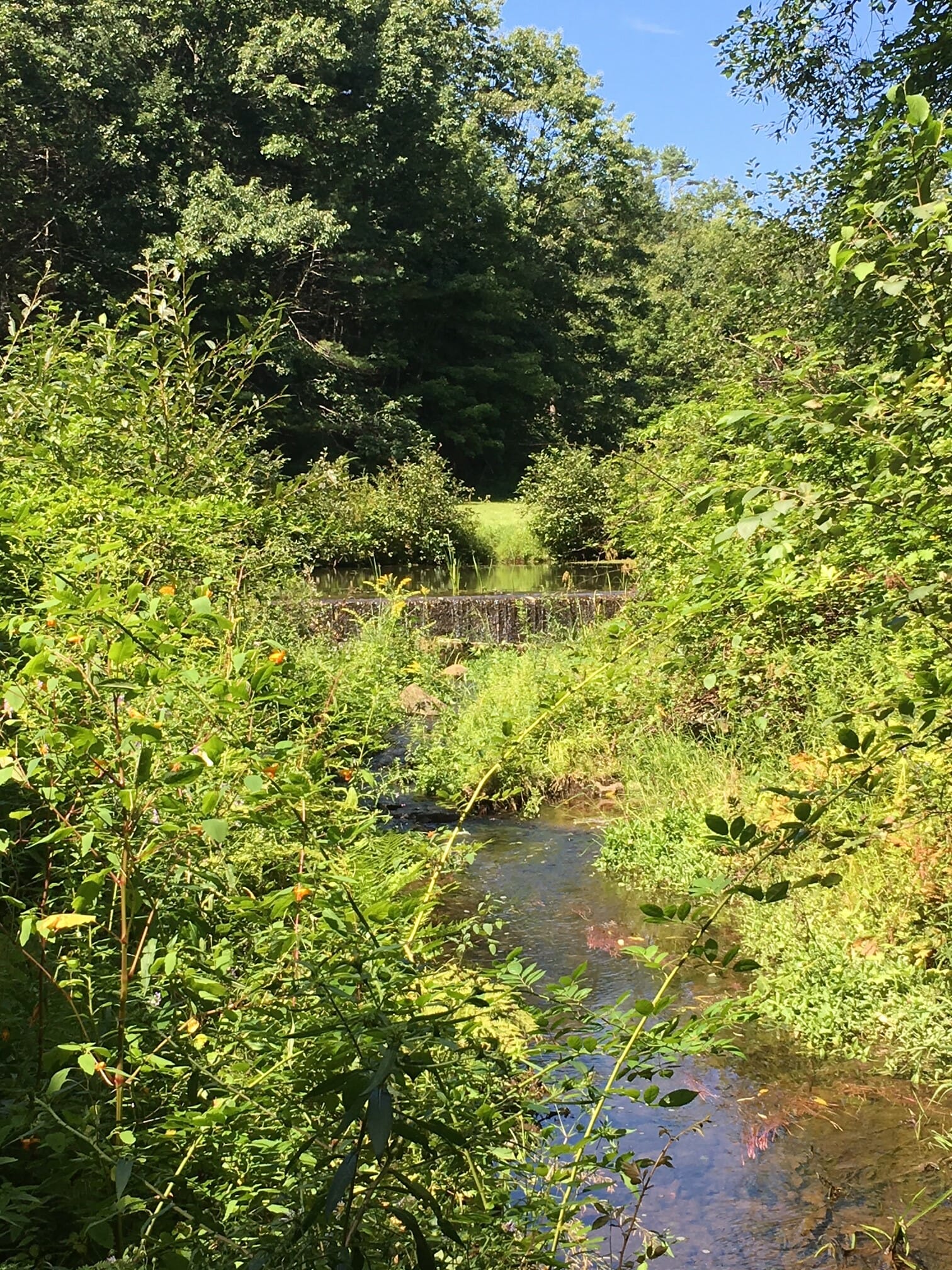By Chris Wood
I admit that I am a bit of a freak about salter brook trout. You consider yourself a seasoned and knowledgeable angler, only to learn of these furtive coastal fish that occupy saltwater habitat and can grow four inches in a single winter in the salt. Daniel Webster is purported to have caught a 14-pound salter in Long Island. Salters move between freshwater and salt in response to weather, drought, and other stressors. How cool is that?
Trout Unlimited’s work with salters dates back to the 1980s when TU worked with the Lyman family to protect Red Brook, a stream that flows through 650 acres of protected land near Plymouth, MA. In the intervening years, dam removal, riparian plantings and other restoration work by the Cape Cod chapter, and other partners, especially the Massachusetts department of fish and wildlife led to a seven-fold increase in the number of Red Brook salters.
Recent work in Maine may lead to a similar resurgence of salters along the rocky coast.
Earlier this week, I was at a meeting with the good people of L.L. Bean in Freeport, Maine—home of the billion-dollar company that Leon Leonwood Bean started in a basement in 1912 by selling boots constructed of rubber bottoms and leather uppers. My purpose was to thank them for a recent donation of more than 400 fly rod and reel starter kits that we will share with our chapters for their youth camps and casting clinics.
L.L. Bean does this every year. Over the last 20 years, they have donated about $800k worth of fly gear to help speed kids on the path to fishing and conservation. Their commitment to kids and conservation is very real, very lasting, and very important.
The meeting took a turn, however, when Jeff Reardon, our Maine brook trout director, began talking about Frost Gully Brook in Freeport. Frost Gully Brook is a typical semi-urban stream. Within two miles of the ocean, the brook is bisected by three dams and several culverts, including one culvert that is impassable to fish. And it is loaded with brook trout. Brook trout that would likely become salters if given access to the salt water.
The dams were originally constructed to provide drinking water to the town of Freeport and surrounding areas, but like so many dams in the country, they have not had a useful social purpose in decades. Freeport today gets its drinking water from a rich reservoir of groundwater–the same groundwater that will help maintain brook trout in Frost Gully Brook as the climate warms.
So, the dams sit on the landscape. Blocking the ability of brook trout to move in response to drought, floods, or even food in the estuaries—the salter brook trout equivalent of fast-food. Moreover, the small dams are “thermal barriers” whose reservoirs raise the ambient water temperature 20 degrees to near lethal levels for trout.
The Frost Gully Brook story is repeated all along the Maine coast. A few years ago, TU scientists conducted a range-wide analysis of 457 coastal streams and found that 201 were of “unknown status” for sea-run or salter brook trout. Since then, volunteers surveyed 155 streams, finding brook trout in 74 of them. Some populations such as in Frost Gully Brook, are very strong—in spite of the dams, and other development pressures of relatively urban areas.
The dams are little more than insurance liabilities for their owners, so Jeff is talking with them about removing them. He is also talking with the state about improving passage through several of the culverts through which Frost Gully Brook flows. When the funding is raised, and the project complete within a year or two, salter brook trout from Frost Gully Brook will once again demonstrate their remarkable life history and access the saltwater of Casco Bay.
To be certain, this work will not, in and of itself, recover salters throughout their coastal range. But it will demonstrate the resilience of a remarkable little trout, and how salters—and trout and salmon everywhere—will respond when people give them half a chance.
Chris Wood is the CEO and President of Trout Unlimited



